- Rilke Schule German Immersion School
- German Cultural Events
German Cultural Events
-
First Day of Kindergarten
AUGUST
Schultüten
Once upon a time in Germany, children who were about to start school were told the legend of the tree that grows in every teacher’s garden. It was said that this tree grew bags filled with all types ofSüßigkeiten(sweets), toys and many goodies. These bags are knownas Schultüten (school cones).
Schultüten have been given to German kids on their first day of school since around 1810. This tradition started in big German cities such as Jena, Dresden and Leipzig. To this day, parents and family members fill Schultüten with yummy sweets, little presents and useful stationery. They give them to children to celebrate the beginning of their school days.
When children in Germany set off for their first day in school upon entering first grade, their parents and/or grandparents present them with a big cardboard cone, prettily decorated and filled with toys, chocolate, candies,school supplies, and various other goodies. It is given to children to make this anxiously awaited first day of school a little bit sweeter.
At Rilke Schule, on the first day of Kindergarten, the school holds a Schultüten assembly at the end of the day for all the Kindergarteners to receive their Schultüten. The volunteer parents gather the materials and assemble them ahead of time.Oktoberfest
OCTOBER
Oktoberfest, the world's largest Volksfest (beer festival and travelling funfair), traces its origins back to October 12, 1810, when Crown Prince Ludwig of Bavaria married Princess Therese of Saxony-Hildburghausen. The citizens of Munich were invited to celebrate the royal wedding on the fields in front of the city gates, now known as Theresienwiese ("Theresa's Meadow"). The festivities included
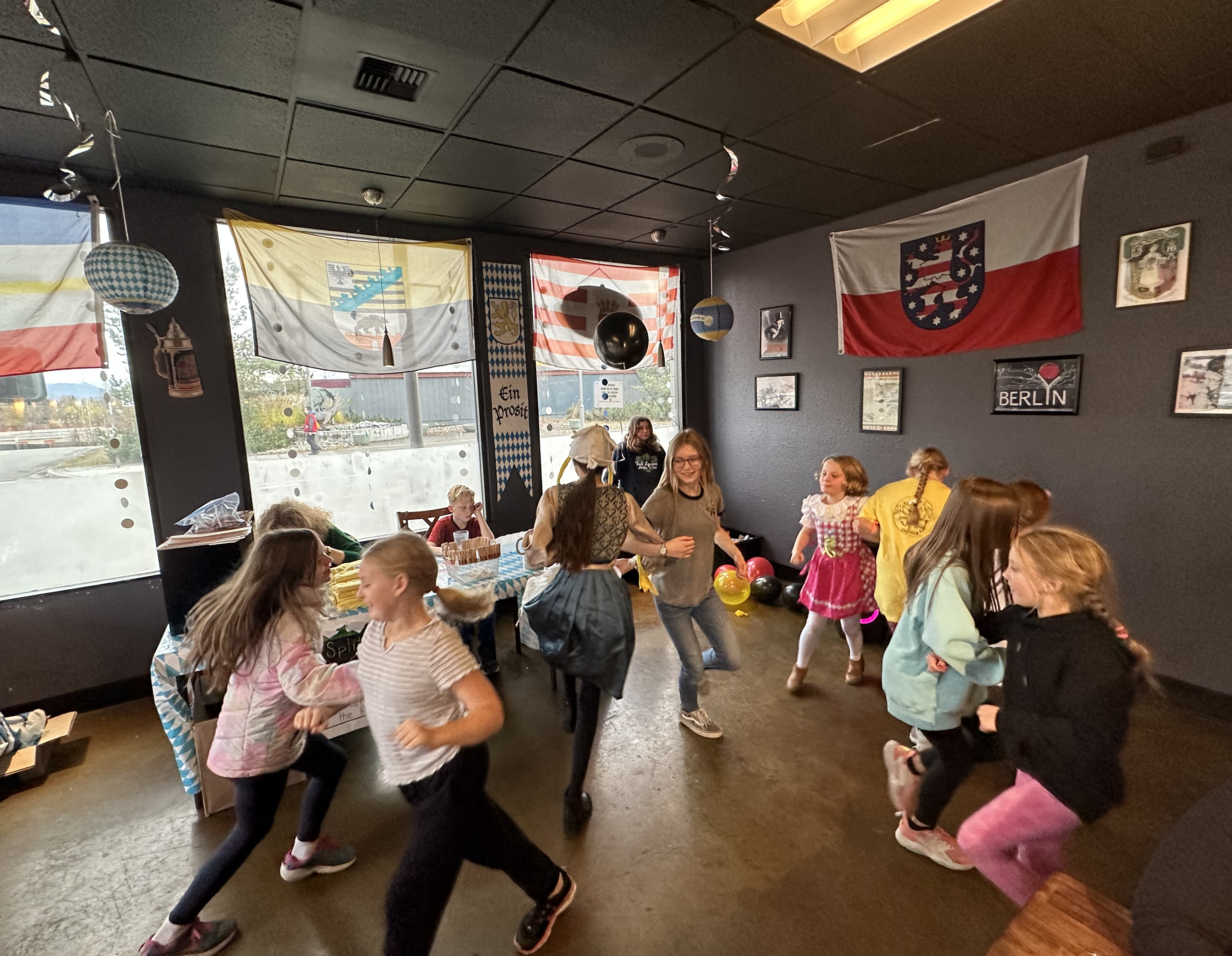
horse races, parades, and music. Over the years, the event expanded and evolved, becoming an
annual tradition deeply ingrained in Bavarian culture. Today, Oktoberfest attracts millions of visitors from around the world who come to enjoy the huge restaurant tents full of traditional Bavarian cuisine, amusement rides, and lively atmosphere. It has become synonymous with celebration, camaraderie, and the spirit of German hospitality.
At Rilke we host an annual weekend event at West Berlin in October. This is one of our largest fundraising events of the year. It is typically SOLD OUT, so get your tickets right when they come on sale!
St. Martinstag Laterne Parade
NOVEMBER
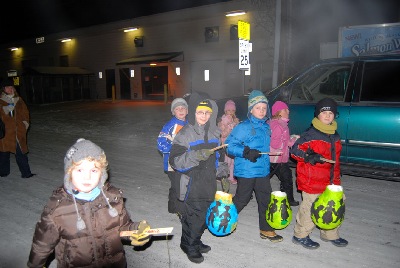
St. Martin's Day, also known as the Feast of St. Martin, Martinstag or Martinmas, is November 11, the feast day of Martin of Tours, who started out as a Roman soldier. He was baptized as an adult and became a monk. It is understood that he was a kind man who led a quiet and simple life. The
most famous legend of his life is that he once cut his cloak in half to share with a beggar during a snowstorm, to save the beggar from dying of the cold.
The day is celebrated in the evening of November 11 in some parts of the Netherlands, in a small part of Belgium, and most areas of Germany and Austria. Children go through the streets with paper lanterns and candles, and sing songs about Saint Martin. Sometimes, a man dressed as Saint Martin rides on a horse in front of the procession.
In recent years, the lantern processions have become widespread in Germany and theNetherlands. In some areas, there is a traditional goose meal. According to legend, Martin was reluctant to become bishop, which is why he hid
in a stable filled with geese. The noise made by the geese betrayed his location to the people who were looking for him.
At Rilke Schule we have celebrated St. Martinstag with a fun evening lantern parade and bonfire with cocoa and gingerbread
men baked by our volunteer parents. The children create beautiful lanterns in art class before the event, and carry them in the parade singing traditional St. Martinstag songs. Our interns have also performed a small skit enacting the legend for the school. Rilke Schule uses this event as a charity winter clothing drive to collect warm clothing to donate to the needy (none of the coats to be donated are cut in half.)
Photo Credit: Yuliya Helgeson
St. Niklaus Tag
DECEMBERIn Germany, St. Nikolaus Tag is usually celebrated on a small scale. Many children put a boot called Nikolaus-Stiefel (Nikolaus boot) outside the front door on the night of 5
December to 6 December. St. Nicholas fills the boot with gifts and sweets, and at the same time checks up on the children to see if they were good, polite, and helpful during the last year. If they were not, they will have a tree branch (Rute) in their boots instead. Sometimes Nikolaus also visits the children at school or in their homes and asks them if they have been good (sometimes checking his golden book for their record), handing out presents on a per-behavior basis. This has become more lenient in recent decades.
But for some children, Nikolaus also elicits fear, as he is often accompanied by Knecht Ruprecht (Servant Ruprecht), who threatens to beat the children for misbehavior. Knecht Ruprecht is equipped with deerlegs. In Switzerland, where he is called Schmutzli, he threatens to put bad children in a sack and take them back to the dark forest. In other accounts he throws the sack into the river, drowning the naughty children.
At Rilke Schule, there has often been an art project or volunteer parents creating a “boot” for each child to put out in front of their classroom on the eve of Niklaus Tag. In the morning they are full of treats (and only a few sticks), and St. Niklaus himself has come each year with Knecht Ruprecht to visit the children of Rilke Schule and see how well behaved they have been during the year. There have been no reports of children thrown into sacks and taken to dark forests.References: Wikipedia
Christkindlmarkt
DECEMBER
Christkindlmarkt is a wintertime holiday market festival held every December in Germany and throughout Europe. The PTO of Anchorage's Rilke Schule German Immersion School is pleased to host our own annual Alaskan Christkindlmarkt one weekend in December. A variety of vendors will feature homemade gifts, imported German goods, food and fun for the whole family.
Fasching Karneval
FEBRUARY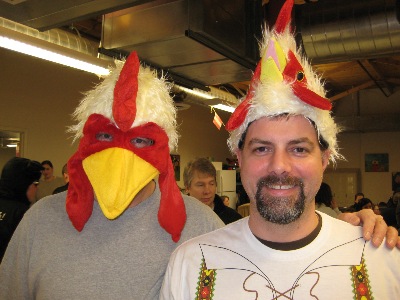
Germans call the pre-Lenten Carnival season die närrische Saison ("the foolish season") or die fünfte Jahreszeit ("the fifth season"). Except for Munich's Oktoberfest, it is the one time of year when many normally staid Germans (and Austrians and Swiss) loosen up and go a little crazy. Fastnacht or Karneval is a "movable feast" (ein beweglicher Festtag) that depends on the date of Easter (Ostern). The official start of the Fasching season is either January 7 or the 11th day of the 11th month (Elfter im Elften, Nov. 11), depending on the region. This gives the Carnival guilds (Zünfte) three to four months to organize each year's events (Carnival balls, parades, royalty, etc.) leading up to the big bash in the week before Ash Wednesday (Aschermittwoch), when the Lenten season (die Fastenzeit) begins.
In German-speaking countries, two distinct varieties of Carnivals are held. The Rhenish Carnival is held in the west of Germany, mainly in the states of North Rhine-Westphalia and Rhineland Palatinate, and is famous for celebrations such as parades and costume balls. Cologne Carnival is the largest and most famous. On Carnival Thursday (called "Old Women Day" or "The Women's Day"), in commemoration of an 1824 revolt by washer-women, women storm city halls, cut men's ties, and are allowed to kiss any man who passes their way.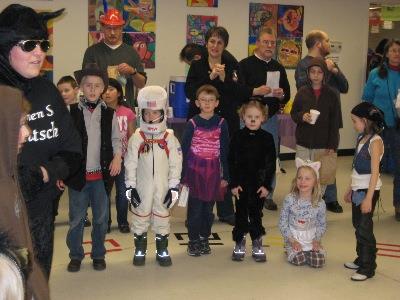
The "Swabian-Alemannic" carnival, known as Fastnacht, takes place in Swabia, (Southwestern Germany), Switzerland, Alsace, and Vorarlberg (Western Austria). It traditionally represents the time of year when the reign of the cold, grim, winter spirits is over and these spirits are being hunted down and expelledReferences: http://german.about.com/library/weekly/aa020501a.htm, Wikipedia
Fur Rondy ParadeFEBRUARY
Every year, Rilke Schule has a float in the Fur Rondy Parade.
Check out when the next parade is by visiting https://www.furrondy.net/events/fur-rondy-grand-parade/
Poetry Declamation Contest
Second Semester
The origins of Poetry Declamation go back to the Romans. Students compete by reciting a poem from memory in front of a panel of judges, and points are awarded based on the presentation.
The tradition of reciting foreign language poems in a recitation contest is popular at many school around the world. The Foreign Language Declamation Contest in Anchorage was begun at Bartlett High School in 1976. Schools from all over the state were invited to participate in German, French, Spanish and Russian. Several categories, including poetry recitation, cultural test, and impromptu speaking, among other things, were included in the competition. The success of the program prompted the creation of regional and state level competitions where only the top five students from each language level in the district go on to the state level. In the 90's a separate contest for middle school students was opened with similar categories. It is called Middle School Madness and takes place every May. Rilke's Declamation Contest was born in 2008 to provide a similar opportunity for Elementary School students.
At Rilke Schule we hold a Poetry Declamation contest each sping. Children in each grade memorize a specific German poem and recite it to their teacher and classmates. The top three children from each class are chosen to participate in the contest, judged by German officials and German teachers in Anchorage. Points are given based on accuracy and recitation, and the winning performers are awarded Gold, Silver and Bronze medals.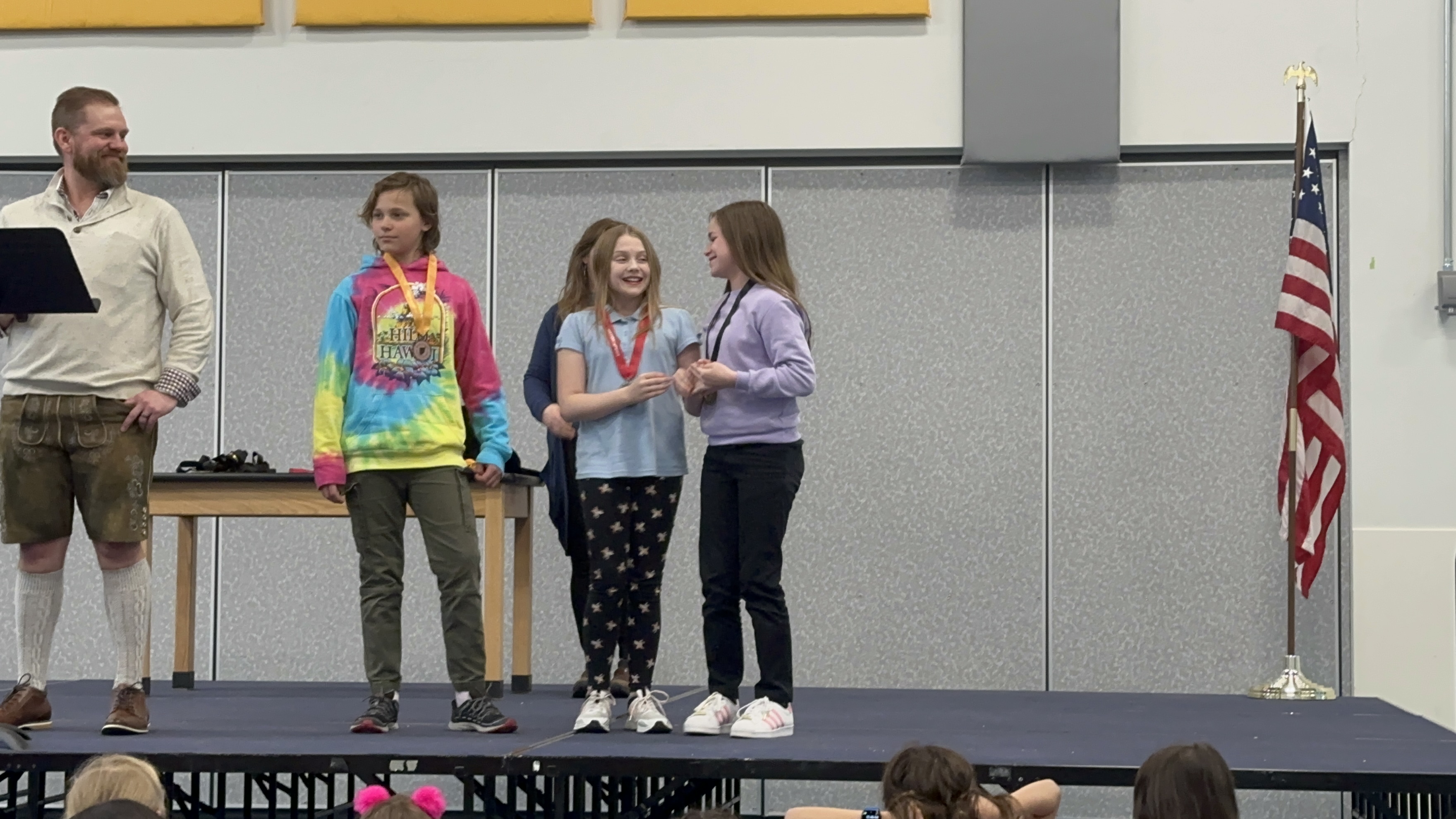
Kinderlauf
MAY
Rilke Kinderlauf is an annual fundraiser FUN RUN hosted by the RSV to help fund excellent educational opportunities and cultural enrichment events at the school wide level. We encourage families and individuals of all ages and abilities to join us on a family friendly run.
THESE ARE MOST OF OUR ANNUAL FAMILY EVENTS BUT PLEASE FOLLOW OUR FACEBOOK PAGE AND WEEKLY NEWSLETTER FOR THE MOST UP-TO-DATE INFORMATION!

